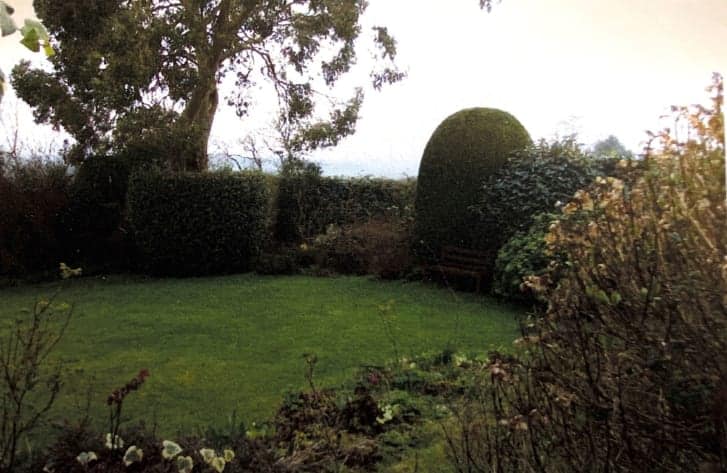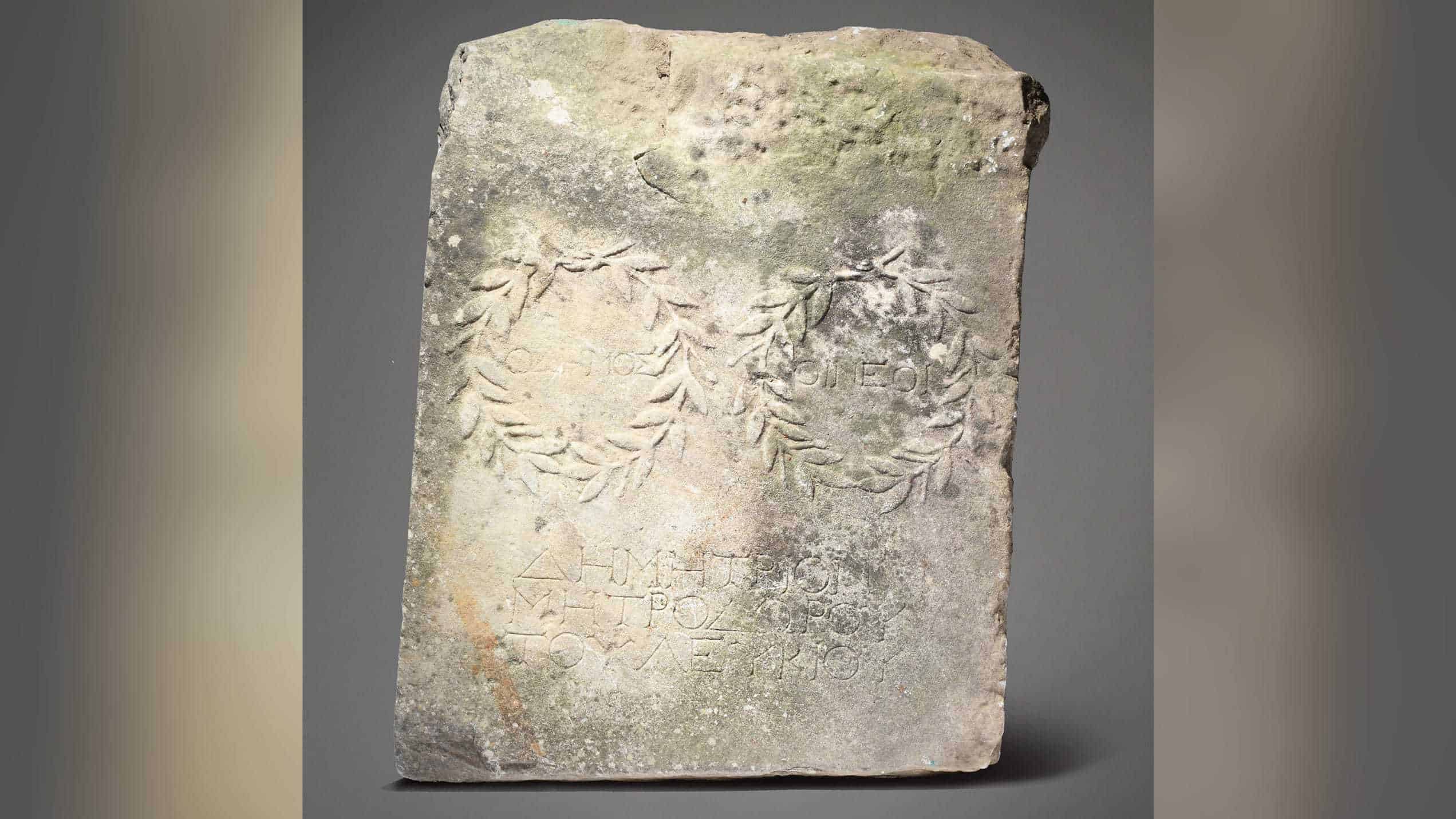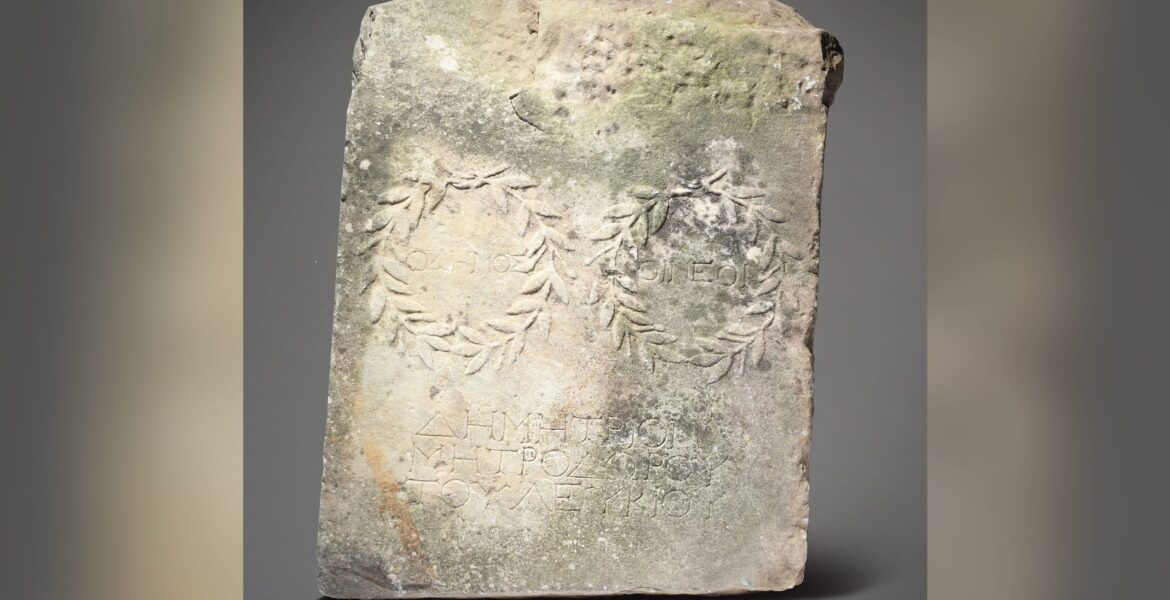An ancient Greek marble slab, used for nearly a decade as a horse mounting block before origins were revealed, is at the center of a mystery as experts scramble to find out how it ended up in the garden of a bungalow in England.
The intricate slab features a Greek inscription that clarifies its origins and has been dated back to the second century AD.
The marble slab was stumbled upon 20 years ago by the owner of a house in Whiteparish, a village in southern England, who found it in the rockery of her garden.

She used it as a mounting block in her stable for almost ten years before finally noticing a laurel wreath carved into its surface, according to a press release from auction house Woolley and Wallis, which is auctioning off the piece.
Will Hobbs, an antiquities specialist at Woolley and Wallis, said artifacts such as the rock often arrived in England in the 18th and 19th centuries when wealthy aristocrats would tour Europe learning about classical art and culture.
"We assume that is how it entered the UK, but what is a complete mystery is how it ended up in a domestic garden, and that's where we'd like the public's help," Hobbs said in a statement.
Upon realizing she hadn't been stepping on an ordinary garden rock, the equestrian consulted a local archaeologist who identified the marble slab as dating to the second century.

Origins are linked to Greece or Asia Minor, the peninsula that today constitutes the Asian portion of Turkey.
It stands 63 centimeters tall, with an inscription in Greek that reads: "The people (and) the young men (honor) Demetrios (son) of Metrodoros (the son) of Leukios."
- Origin of the name Demetrius: Derived from the Greek Demetrios (of Demeter)
- Metrodorus (Greek: Μητρόδωρος, romanized: Mētrodōros) means 'mother's gift'
- Λεύκιος (Ancient Greek) Derived from the Greek adjective λευκός (leukos) meaning "white" as well as bright, clear or brilliant.
The slab is to be sold in February by Woolley and Wallis, with a pre-sale estimate of up to £10,000-£15,000 (roughly $13,600 or AU$17,555 to $20,400 or AU$26,332)..
Auctioneers asked locals whether anyone knew how the Ancient Greek marble slab found itself in the quiet English garden.
Hobbs notes that two notable homes close to Whiteparish were demolished in 1949 after having been requisitioned by the army during the war.
Another nearby house was destroyed in a fire in 1963, and it's possible rubble from there was reused at building sites in the area shortly afterward.


